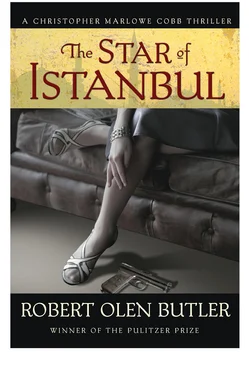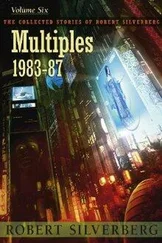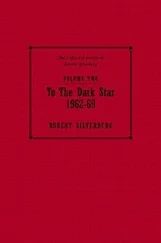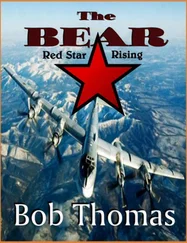The Hun behind the wheel made two small, simultaneous movements — a lean forward and a turn of his face to the right — small enough to suggest that the place he was looking for was still up ahead but he expected it soon.
I started slipping my right hand under my coat but careful not to shift my shoulders. I’d cut the flap off the holster in London and now I gently wedged it farther open and I slid my hand inside and took my Mauser into a shooting grip.
I was sure Ströder had seen no movement in me. His gaze was going forward with the driver’s. I looked too. The road took a curve to the right, moved closer to the water, and then straightened, and a couple of hundred yards up ahead the street was lit bright.
Ströder leaned forward in his seat. “There it is,” he said to the driver, who began abruptly to slow down.
I started to pull the Mauser from behind my back, still making as little stir as possible. Even as the pistol came free I was planning ahead. His weapon. Surely he wore it Geladen , loaded. As my right hand emerged and crossed before me, while Ströder was leaning back again into his seat, I switched the Mauser to my left hand just in case. This was the pistol he had to assume would go off at the slightest move, and I needed my right hand for his Luger to easily cover the driver down the road.
The Mercedes engine whined and the gears ground heavily as we slowed and the driver shifted down. The street lights approached.
I wrenched my torso around to face Ströder and I pressed the barrel of the Mauser against his head, into the soft space just above his cheekbone, between his ear and his temple, holding my arm high at the elbow and squaring the muzzle into his head even as I reached into his holster and removed his Luger.
This was all quick, the Mauser leading the way. Ströder was smart enough to go absolutely still at its first touch.
The Mercedes engine was noisy in its deceleration. I leaned toward Ströder and said, as low as I could for him still to clearly hear me, “We must drive on by.”
We were going very slow, nearing the villa where no doubt there were armed guards that Ströder was thinking about.
I let only the briefest fraction of a second pass without him speaking and I nudged the Mauser muzzle into his head. “I will do this now,” I said.
“Drive on,” Ströder said, firmly, loudly.
The Mercedes didn’t have a rearview mirror. The driver could not see the Mauser pointed at Ströder and his head bobbled a bit in the impulse to look back to us. He had his own pistol somewhere on or around him. I thumbed the Luger’s safety forward into the off position, but I kept the pistol low behind the front seat for now. It would be unfortunate to have to shoot the driver in a moving car, though not as unfortunate as his shooting me.
At that moment another automobile passed us from behind, moving into the oncoming lane and going around and swinging back in front of us.
I saw all this peripherally with my main focus on the Hun behind the wheel. He didn’t take his eyes off the road, settling for sliding his head sideways and angling his ear toward us. “Sir?”
I pushed with the Mauser.
“Do it now,” Ströder said. “Drive on.”
“Yessir,” our driver said.
He sped up.
And we passed into the bright light.
I let myself take a quick glance.
A stone wall. A gate and two guards in uniform. The stone wall. And we were past and into the darkness. But I could find this villa again.
Now my plan was vague.
Incapacitate these two. That much was clear enough. I was not yet prepared to go back into the villa. The first audible gunshot would make their advantage in numbers impossible to get past. And it would instantly jeopardize Lucine inside. Metcalf gave me a good weapon for a shipboard murder. My pistol-shaped Winchester with a silencer. It was the right weapon for slipping into Enver Pasha’s yali as well. But it was in the bottom of my valise, in the bottom of the wardrobe, in my room at the Pera Palace.
So these two had to be incapacitated for a good long while. But I kept rapidly playing that possible scene over and over in my head, staging it this way and that, and I was having trouble figuring out even how to safely get these two out of the automobile, much less effectively restrain them, and the only plan that seemed to have a chance of working was to preemptively shoot them both pretty much simultaneously in the head. Which was not what I wanted to do.
In the meantime we were driving north, accelerating again, and one of these two was still armed.
“Not too fast,” I told Ströder.
And he repeated the order to the driver.
We stopped accelerating.
Ahead, just out of the range of our headlights, was the dim form of the automobile that had passed us at the villa.
We caravanned, the two of us, for maybe half a mile, and then the car ahead dropped back a little and came into the clarity of our lights.
I looked at it for the first time with my full attention.
It was a Unic taxi.
The Armenian model.
Arshak had hung around after he dropped me off and he’d followed us.
He was beginning to slow.
We slowed.
Arshak slowed even more, dropping back right in front of us.
The German driver honked his horn. He craned his neck to the left to see if the oncoming lane was clear for us to pass.
I nudged Ströder’s head. “Let’s stay behind this guy.”
Ströder’s face was in shadow so I didn’t see him cut his eyes to me, but I felt the faintest push against the Mauser’s barrel as he had the reflex to turn his head to look in my direction. He’d been making his own plans about how to handle this. All that just got overturned. He hadn’t figured on an accomplice.
“Stay behind that vehicle,” Ströder said loud and firm.
We were in a stretch of road either without a villa or in the owned and managed adjoining grounds of two villas. Arshak was going slower and slower.
We were going slower and slower.
Arshak was probably beginning to figure I’d gained some sort of control in the Mercedes.
The driver turned his head now, abruptly, as if to question these odd orders.
He had only a fragment of a moment to start to put things together before the muzzle of the Luger was pointed at the right eye of his half-turned face.
“Pull over,” I said, straight to the driver.
“Sit very still, Colonel,” I said, pushing lightly at Ströder’s head. “Hair trigger.” But I kept watching the driver, whose face was swinging away from me, going back to the road.
“Driver,” I said sharply. “Both hands visible on the wheel.”
Both the man’s hands appeared at the top of the steering wheel.
He pulled to the side of the road.
The Unic rolled only a little farther and also pulled off.
I said to both my Germans, “It is very convenient to shoot both of you in the head now. So you need to sit very still. I will kill you at the smallest movement.”
They complied.
“Cut off your engine,” I said, and the driver moved the throttle lever on the steering wheel and the engine sputtered and went silent.
“Leave your lights on,” I said.
He did.
And we waited, the three of us, with me sitting as still as these two, as if the pistols were pointed at me.
I figured Arshak was waiting for some sign from the car. But I couldn’t step out or these two would do something stupid, especially the driver.
I could have asked for his weapon. But I had control of his empty hands. I didn’t want to invite him to put a pistol in one of them, especially in this dim light and out of my sight.
So we waited some more. It felt like a long time, though it couldn’t have been. But I knew the longer it went on, the more likely it was that one of these guys would try something stupid.
Читать дальше












